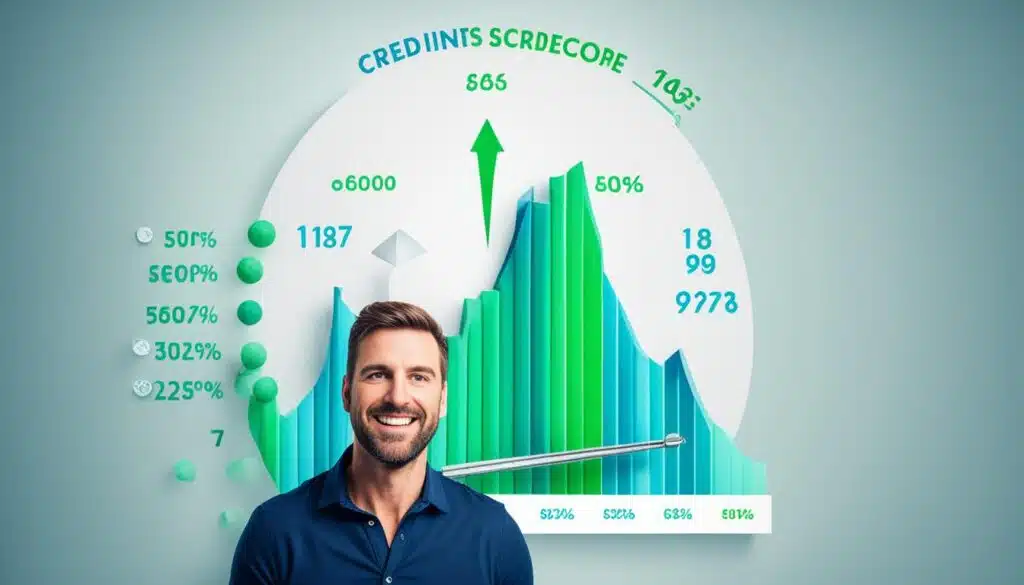In your 20s, making smart financial choices is crucial for long-term success. Whether you’re just starting your career or figuring out how to manage your money, these personal finance tips will help you build a solid foundation for your future.
Key Takeaways: Personal Finance Tip
- Create a budget to track your income and expenses.
- Build a good credit score by using credit responsibly.
- Set up an emergency fund for unexpected expenses.
- Start saving for retirement early to take advantage of compound interest.
- Pay off debt strategically to improve your financial standing.
One of the first steps towards financial success is creating a budget. It helps you understand where your money is going and allows you to make informed decisions about your finances. By setting financial goals, you can prioritize your spending and saving, ultimately working towards a more secure and fulfilling financial future.
Building a good credit score is essential for your financial well-being. It enables you to access better interest rates, qualify for loans, and even secure lower insurance premiums. By using credit responsibly and making timely payments, you can establish a positive credit history that will serve you well throughout your life.
Setting up an emergency fund is crucial for unforeseen circumstances. Life is unpredictable, and having a financial safety net can provide peace of mind during challenging times. Aim to save at least three to six months’ worth of expenses in a high-yield savings account to protect yourself from unexpected events that may require significant financial resources.
Starting to save for retirement early is a wise decision. By taking advantage of employer-sponsored retirement accounts like 401(k)s and contributing enough to receive the full employer match, you can maximize your savings potential. Consider opening a Roth IRA for additional tax advantages and continue to contribute consistently to enjoy the power of compound interest.
Paying off debt, such as student loans and credit card debt, is another crucial step towards financial success. Prioritize debt repayment by creating a clear repayment plan and allocating a portion of your income towards it. Consolidating your debts may help simplify payments and reduce interest rates, putting you on the path to financial freedom.
Developing good money habits involves regularly checking your account balances, minimizing fees, and optimizing your credit cards to suit your spending habits. Surround yourself with knowledgeable individuals and seek guidance from financial advisors to make informed financial decisions. By protecting your assets through sufficient insurance coverage and implementing necessary estate planning measures, you can safeguard your wealth and ensure a secure future for yourself and your loved ones.
In conclusion, by implementing these personal finance tips in your 20s, you can set yourself up for long-term financial success. Take control of your finances, prioritize your goals, and build healthy money habits. With determination, patience, and a clear plan, you can achieve your financial dreams and secure a brighter future.
Create a Budget and Stick to It
Creating a budget is a fundamental step in managing your finances effectively. It allows you to track your income and expenses, prioritize your spending, and make informed financial decisions. Whether you’re just starting out or experiencing an income change, creating and sticking to a budget is key to maintaining financial stability.
Fortunately, there are numerous online resources and apps available to help you create and track your budget. These tools make it easy to input your income, categorize your expenses, and visualize your financial goals. From popular apps like Mint and You Need a Budget to online budgeting templates, there are options for every individual’s needs and preferences.
Once you’ve created your budget, it’s important to regularly check in and make adjustments as necessary. Life is dynamic, and your financial situation may change over time. By reviewing your budget regularly, you can identify areas where you may need to cut back or allocate more funds.
When it comes to sticking to your budget, discipline is key. It’s important to develop healthy spending habits and avoid overspending. This means being mindful of your daily expenses, prioritizing your needs over wants, and finding creative ways to make your budget work. Whether it’s bringing your lunch to work, finding cheaper alternatives, or practicing delayed gratification, small changes can add up and help you stay on track.
Remember, sticking to your budget doesn’t mean sacrificing everything. It’s about finding a balance between enjoying life and being financially responsible. Allow yourself some flexibility for occasional treats or entertainment while still adhering to your financial goals.
Quote: “A budget is telling your money where to go instead of wondering where it went.” – Dave Ramsey
By committing to create a budget and sticking to it, you can take control of your finances and achieve your financial goals. Whether you want to pay off debt, save for a down payment, or build an emergency fund, a budget serves as a roadmap to guide your financial journey. Take advantage of the online resources available and start creating your budget today!
Now, let’s move on to the next section and explore how to build a good credit score.
Build a Good Credit Score
Establishing a good credit score is vital for qualifying for financial products and obtaining better terms. Your credit history reflects your financial responsibility and determines your creditworthiness. By following these strategies, you can build and improve your credit score:
Become an Authorized User or Apply for a Secured Card
Becoming an authorized user on someone else’s credit card or applying for a secured card are great options if you have no credit history. As an authorized user, you can piggyback on the primary cardholder’s credit and start building your own credit profile. Secured cards require a cash deposit as collateral, making them accessible even if you have no credit.
Utilize Experian Boost
Take advantage of Experian Boost, an innovative tool that allows you to boost your credit score by adding utility and telecom payment history to your Experian credit file. This can be especially beneficial if you have limited credit history or a thin credit file. By including these bills in your credit history, you can enhance your creditworthiness.
Monitor and Manage Credit Utilization
Credit utilization refers to the amount of available credit you are using. Aim to keep your credit utilization ratio below 30% by spending within your means and paying off the balances in full each month. This demonstrates responsible credit management and positively impacts your credit score.
Maintain a Positive Payment History
Making payments on time is crucial for building a good credit score. Late payments can have a significant negative impact on your credit history. Set up automatic bill pay or reminders to ensure you never miss a payment deadline.
Factors Affecting Your Credit Score
| Factor | Impact on Credit Score |
|---|---|
| Payment History | High |
| Credit Utilization | High |
| Length of Credit History | Medium |
| New Credit | Low |
| Credit Mix | Low |
Remember, building a good credit score takes time and consistent effort. By following these strategies and being proactive in managing your credit, you can establish a solid credit foundation that opens doors to better financial opportunities.
Set up an Emergency Fund
One of the most important steps in building a solid financial foundation is setting up an emergency fund. Life is full of unexpected expenses, and having a safety net for these situations is crucial. Whether it’s a medical emergency, a car repair, or a sudden job loss, having an emergency fund can provide peace of mind and prevent financial stress.
When establishing an emergency fund, it’s essential to choose the right savings account. A high-yield savings account is a great option as it offers higher interest rates, making your money work harder for you. This means that over time, your emergency fund will grow more quickly. Look for accounts that provide competitive interest rates and low fees.
Now, how much should you save in your emergency fund? Financial experts generally recommend saving three to six months’ worth of expenses. Take a closer look at your monthly budget and calculate your essential expenses, such as rent or mortgage, utilities, groceries, and insurance. Aim to save enough to cover these expenses for three to six months.
However, during uncertain times like the pandemic, it may be challenging to save a specific target amount. Instead, focus on saving as much as you can afford. Even if you cannot save the recommended three to six months’ worth of expenses immediately, every dollar saved counts.
Benefits of an Emergency Fund
Having an emergency fund comes with a range of benefits. Firstly, it provides a financial cushion, allowing you to handle unexpected expenses without going into debt or relying on credit cards. This can help you maintain a healthy credit score and avoid accumulating high-interest debt.
Secondly, an emergency fund gives you peace of mind. Knowing that you have money set aside for unforeseen situations can significantly reduce financial stress and anxiety. It allows you to face unexpected challenges with confidence, knowing that you are financially prepared.
Lastly, an emergency fund also protects your long-term financial goals. It helps to prevent you from dipping into your savings or investments to cover unexpected expenses. By maintaining a separate fund for emergencies, you can continue working towards your saving goals, such as retirement or a down payment on a home.
Remember, building an emergency fund is a gradual process. Start by setting small goals and gradually increasing your contributions. Consider automating your savings by setting up automatic transfers from your paycheck or bank account to your emergency fund. This way, you are consistently building your savings without actively thinking about it.
Start Saving for Retirement
When it comes to securing your financial future, saving for retirement is a top priority. It’s never too early to start planning and setting aside funds for your golden years. With the power of compound interest, even small contributions made early on can lead to significant growth over time. To help you get started on your retirement savings journey, here are some key considerations:
Employer-Sponsored Retirement Accounts
One of the most valuable retirement savings options is an employer-sponsored retirement account, such as a 401(k) plan. Take advantage of this opportunity by contributing to your retirement account regularly. Aim to contribute at least enough to receive the full employer match, if available. This employer match is essentially free money that can boost your retirement savings.
Consider a Roth IRA
In addition to an employer-sponsored retirement account, consider opening a Roth IRA (Individual Retirement Account). A Roth IRA offers tax advantages and allows your contributions to grow tax-free. This can be particularly beneficial if you expect your income to increase in the future, as Roth IRA withdrawals during retirement are tax-free.
The Power of Compound Interest
Compound interest is a powerful tool when it comes to growing your retirement savings. With compound interest, your money earns interest not only on the initial amount you contributed but also on the accumulated interest. This creates a compounding effect that can significantly boost your retirement savings over time. By starting early, you give your savings more time to grow through compound interest.
Strive for Financial Security
Retirement savings are essential for achieving financial security later in life. By starting to save for retirement as early as possible, you give yourself a better chance of building a robust nest egg. Take advantage of the different retirement account options available, such as employer-sponsored plans and Roth IRAs. Prioritize regular contributions and take advantage of compound interest to maximize your savings potential.
Remember, every little bit counts. Even if you can only contribute a small amount initially, it’s a step in the right direction towards securing a comfortable retirement. Start saving for retirement today and take control of your financial future.
Pay off Debt
Prioritizing debt repayment is crucial for achieving financial freedom in your 20s. By developing a clear repayment plan and allocating a portion of your income towards paying off debt, you can take control of your financial future.
Create a Repayment Plan
Start by assessing your debt situation and creating a detailed repayment plan. Identify all outstanding debts, including student loans and credit card debt. Consider organizing them based on interest rates and prioritize paying off high-interest debt first. This approach will help you save on interest payments over time.
Allocate a Portion of Your Income
Devote a specific portion of your monthly income towards debt repayment. This could be a set percentage or a fixed amount, depending on your financial situation. By consistently making payments, you can shorten the repayment period and reduce the overall amount of interest paid.
| Type of Debt | Outstanding Amount | Interest Rate |
|---|---|---|
| Student Loans | $25,000 | 4% |
| Credit Card Debt | $5,000 | 18% |
Table: Example of Outstanding Debts
Consider Debt Consolidation
If you have multiple debts with varying interest rates and payment schedules, debt consolidation may be a viable option. Debt consolidation involves combining all your debts into a single loan, typically with a lower interest rate and a unified monthly payment. This can simplify your payment process and potentially save you money in the long run.
Save on Interest Payments and Improve Your Credit Score
By prioritizing debt repayment, you can save a significant amount of money on interest payments over time. Paying off debt also improves your credit score, making it easier to qualify for future loans and financial opportunities at lower interest rates.
Develop Good Money Habits
Developing good money habits is key to financial success. By practicing these habits, you can improve your financial stability and make informed decisions about your money. Here are some essential habits to incorporate into your routine:
Regularly Check Account Balances
Checking your account balances, whether it’s your checking account or savings account, helps you stay aware of your financial situation. It allows you to track your income, expenses, and savings progress. Set a regular schedule to review your accounts, ensuring accuracy and identifying any discrepancies.
Avoid Unnecessary Fees
Incurring unnecessary fees can harm your financial health. To avoid them, consider switching to a no-fee checking account. Many financial institutions offer accounts that don’t charge monthly maintenance fees or transaction fees. Additionally, familiarize yourself with the fee structures of credit cards and other financial products to make informed decisions.
Optimize Your Credit Cards
Credit card optimization is crucial for maximizing your benefits and rewards. Choose credit cards that align with your spending habits and financial goals. Look for cards with cashback or travel rewards programs that suit your lifestyle. Moreover, aim to pay off your credit card balance in full each month to avoid high-interest charges.
Monitor Your Credit
Credit monitoring is essential for detecting and preventing identity theft and fraud. Regularly review your credit reports from all three major credit bureaus—Equifax, Experian, and TransUnion. Consider utilizing credit monitoring services that notify you of any suspicious activity or changes in your credit score.
Open a High-Yield Savings Account
High-yield savings accounts offer higher interest rates than traditional savings accounts. By choosing a high-yield account, you can earn more on your savings and accelerate your progress towards financial goals. Compare different banking institutions to find one that offers competitive rates and convenient features.
Remember, developing good money habits takes time and consistency. Surround yourself with knowledgeable individuals, seek guidance from financial advisors, and stay committed to building a successful financial future.
Set Clear Financial Goals
Setting clear financial goals is essential for managing your money effectively and achieving long-term financial success. In your 20s, it’s important to establish goals that align with your aspirations and prioritize your financial decisions accordingly.
Start by breaking down your goals into three categories: short-term, medium-term, and long-term. Short-term goals may include saving for a vacation or purchasing a new car. Medium-term goals could involve paying off student loans or saving for a down payment on a home. Long-term goals might focus on retirement savings or building generational wealth.
Once you’ve identified your goals, prioritize them based on their importance and urgency. This will help you allocate your resources and make informed financial decisions. Prioritization allows you to focus your efforts on the goals that matter most, ensuring progress and success.
Keep your financial goals in mind when making financial decisions. Ask yourself whether a particular expense or investment aligns with your goals and if it moves you closer to achieving them. By making deliberate choices driven by your financial objectives, you can stay on track and make consistent progress.
Example of Financial Goals:
| Goal | Time Horizon |
|---|---|
| Save $5,000 for a European vacation | Short-term (6-12 months) |
| Pay off $10,000 in student loans | Medium-term (2-3 years) |
| Save $100,000 for a down payment on a home | Medium-term (5-7 years) |
| Save $1 million for retirement | Long-term (30+ years) |
Having clear financial goals provides you with guidance and motivation as you navigate your financial journey. Stay focused, track your progress, and celebrate milestones along the way. By setting and working towards your goals, you are taking control of your financial future.
Automate Your Savings
Automating your savings is an effective way to ensure consistent progress towards your financial goals. By setting up automatic transfers from your bank account or paycheck, you can effortlessly contribute to your emergency savings and retirement savings without having to remember to do it manually. This eliminates the risk of forgetting or being tempted to skip saving.
Start small and gradually increase the amount of money you allocate to your savings. This allows you to adjust to the changes in your cash flow and ensures that your regular expenses are not compromised. As your income grows or expenses decrease, consider increasing the automated transfers to accelerate your progress.
By automating your savings, you establish good habits and remove the need for willpower to consistently contribute towards your savings goals. It’s like paying yourself first, ensuring that you prioritize your financial well-being. Plus, with automatic transfers, you don’t have to constantly monitor your savings progress, giving you more time and mental space to focus on other aspects of your financial life.
Benefits of Automating Your Savings:
- Consistent contributions: Automating your savings ensures that you consistently contribute to your emergency fund and retirement savings, even when life gets busy or you forget. This helps you stay on track and build your savings over time.
- Effortless saving: With automatic transfers, you don’t have to manually move money into your savings accounts. It happens automatically, making saving effortless and reducing the chances of spending the money instead.
- Time-saving: Automating your savings frees up your time and mental energy. Rather than regularly reviewing your budget and transferring money manually, you can focus on other important aspects of your financial life.
- Peace of mind: Knowing that you have automated your savings provides peace of mind. You can rest assured that you are consistently working towards your financial goals and have a safety net in place for emergencies.
Automating your savings is like putting your finances on autopilot. It’s a powerful tool that helps you build a solid foundation for your future financial success.
Take advantage of online banking services to set up automatic transfers between your checking account and your savings accounts. If your employer offers direct deposit, consider allocating a portion of your paycheck directly to your emergency fund and retirement savings accounts.
Remember, emergencies can happen at any time, and preparing for retirement is a long-term goal. By automating your savings, you take a proactive step towards securing your financial future.
Build Good Credit
Building good credit is crucial for obtaining favorable interest rates and financial opportunities. By establishing a solid credit history, you can improve your credit score and gain access to better terms for future borrowing needs.
One of the key steps to building good credit is to pay off your credit card balance in full each month. This demonstrates responsible credit card usage and shows lenders that you can manage your debt effectively.
In addition to credit card management, making loan payments on time is essential for building and maintaining good credit. Late or missed payments can have a negative impact on your credit score and make it harder to qualify for loans in the future.
Having good credit opens doors to lower costs and better interest rates. Whether you’re looking to purchase a home, buy a car, or secure a personal loan, lenders will consider your creditworthiness. With a strong credit history, you are more likely to be offered competitive interest rates, saving you money in the long run.
To monitor your progress, regularly check your credit report and score. This will allow you to identify any errors or discrepancies and take corrective actions if necessary. Stay informed about your financial health and take proactive steps to improve your credit if needed.
In conclusion, building good credit is essential for your financial future. By paying off your credit card balance, making loan payments on time, and monitoring your credit score, you can establish a positive credit history and open doors to better financial opportunities.
| Benefits of Building Good Credit | Actions to Take |
|---|---|
| Access to lower interest rates | Pay off credit card balance in full |
| Better loan terms and favorable borrowing options | Make loan payments on time |
| Improved chances of approval for future financial products | Regularly check credit report and score |
| Higher credit limits and increased financial flexibility | Take corrective actions to address any errors or discrepancies |
Protect Your Assets
Ensuring the long-term security of your wealth requires comprehensive insurance coverage. By investing in health insurance, life insurance, auto insurance, and homeowners insurance, you safeguard your assets and provide financial protection for yourself and your loved ones. Regularly review your insurance coverage to ensure it aligns with your evolving needs and circumstances.
Health insurance is a key component of financial well-being, shielding you from high medical costs and providing access to necessary healthcare services. Whether through employer-sponsored plans, private policies, or government programs, health insurance offers vital coverage for medical expenses, preventive care, and prescribed medications.
Life insurance is essential for protecting your loved ones in the event of your passing. It provides a financial safety net by paying out a sum of money to your beneficiaries. Life insurance can help cover funeral expenses, mortgage payments, outstanding debts, and provide future income replacement for your family.
Auto insurance is not only a legal requirement but also crucial for protecting your vehicle and finances in case of accidents, theft, or damage. It provides coverage for repairs, medical expenses, and any legal liabilities that may arise from an accident.
Homeowners insurance is vital for safeguarding your most valuable asset, your home. It provides coverage for the structure of your house, personal belongings, and liability protection in case of accidents or injuries on your property.
In addition to insurance coverage, estate planning is an important consideration for securing your assets. Drafting a will and establishing trusts can help ensure that your assets are distributed according to your wishes and minimize taxes and legal complications for your beneficiaries.
By protecting your assets with the appropriate insurance coverage and prudent estate planning, you create a solid foundation for long-term financial security. Safeguarding your wealth not only provides peace of mind but also allows you to focus on achieving other financial goals and aspirations.
Also Read: Is Finance A Good Career Path? Benefits Explained
Conclusion
Making smart money moves in your 20s lays the foundation for wealth accumulation and sets the stage for financial success in the future. By implementing key strategies like creating a budget, building good credit, establishing an emergency fund, saving for retirement, paying off debt, and developing good money habits, you can work towards achieving your long-term financial goals.
It’s important to stay committed and patient on this journey. Celebrate milestones along the way as you make progress towards your future financial goals. Taking these personal finance tips to heart today will pave the way for a brighter and more secure financial future.
Remember, financial success is not achieved overnight. It is the result of consistent effort and wise decision-making. By following these practices and making sound financial choices, you can position yourself for a lifetime of financial stability and realize your dreams.
FAQs
Q: What are some money-saving tips for personal finance success?
A: To save money, you can try cutting back on unnecessary expenses, setting a personal budget, and building an emergency fund.
Q: How can I make sure I am effectively managing my money?
A: You can manage your money effectively by tracking your expenses, creating a budget, and setting financial goals.
Q: Why is it important to build an emergency fund?
A: Building an emergency fund is crucial as it provides financial stability during unexpected situations like job loss or medical emergencies.
Q: How can I improve my financial literacy?
A: You can enhance your financial literacy by reading personal finance books, blogs, and seeking guidance from financial experts.
Q: What is the significance of setting financial goals?
A: Setting financial goals helps you stay motivated, focused, and accountable towards achieving your desired financial outcomes.
Q: How can a vision board help with financial success?
A: A vision board can serve as a visual representation of your financial aspirations, motivating you to take actions towards realizing your goals.
Q: When should one consider asking for a raise as a financial strategy?
A: You can consider asking for a raise after reaching certain milestones, acquiring new skills, or demonstrating exceptional performance at work.














